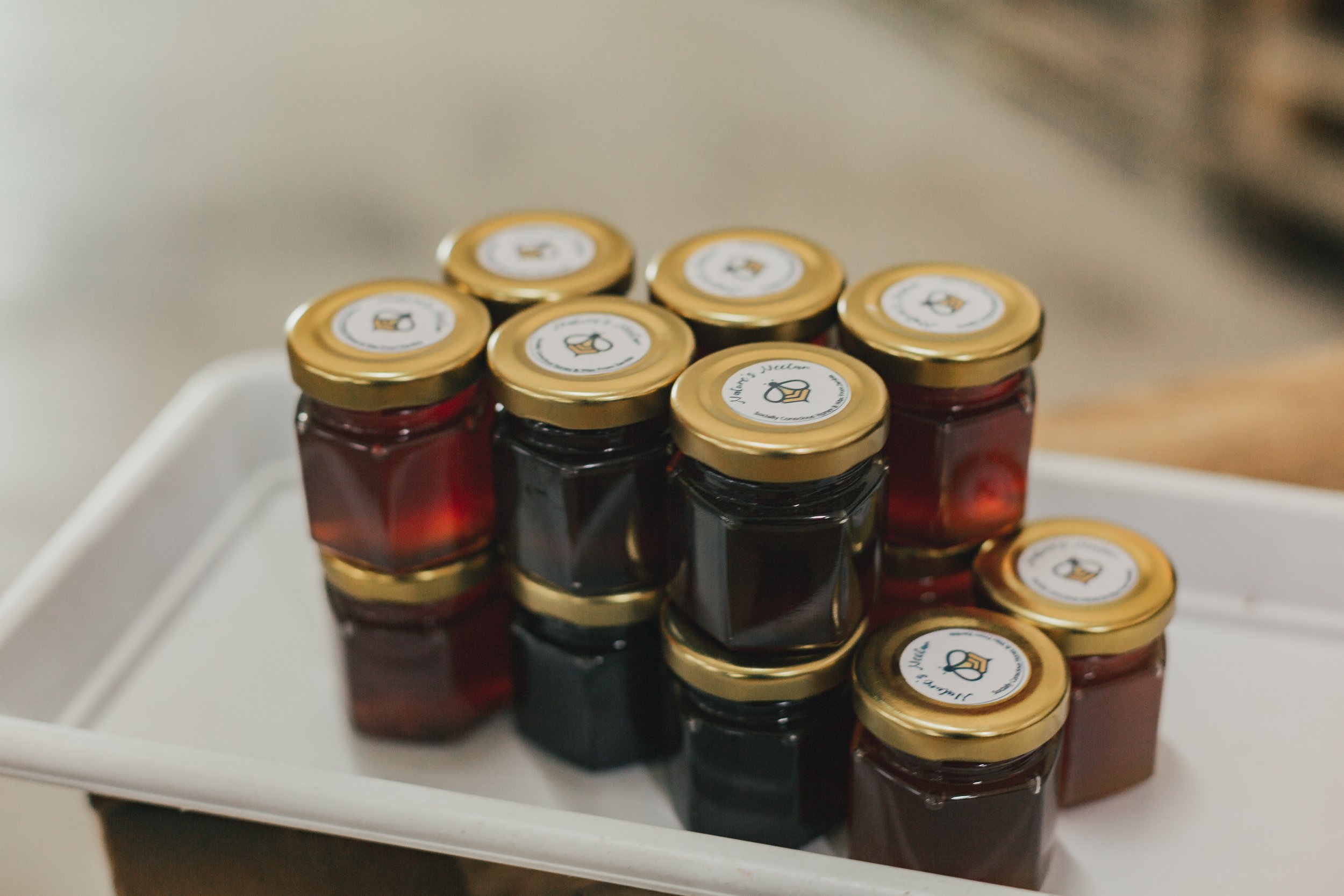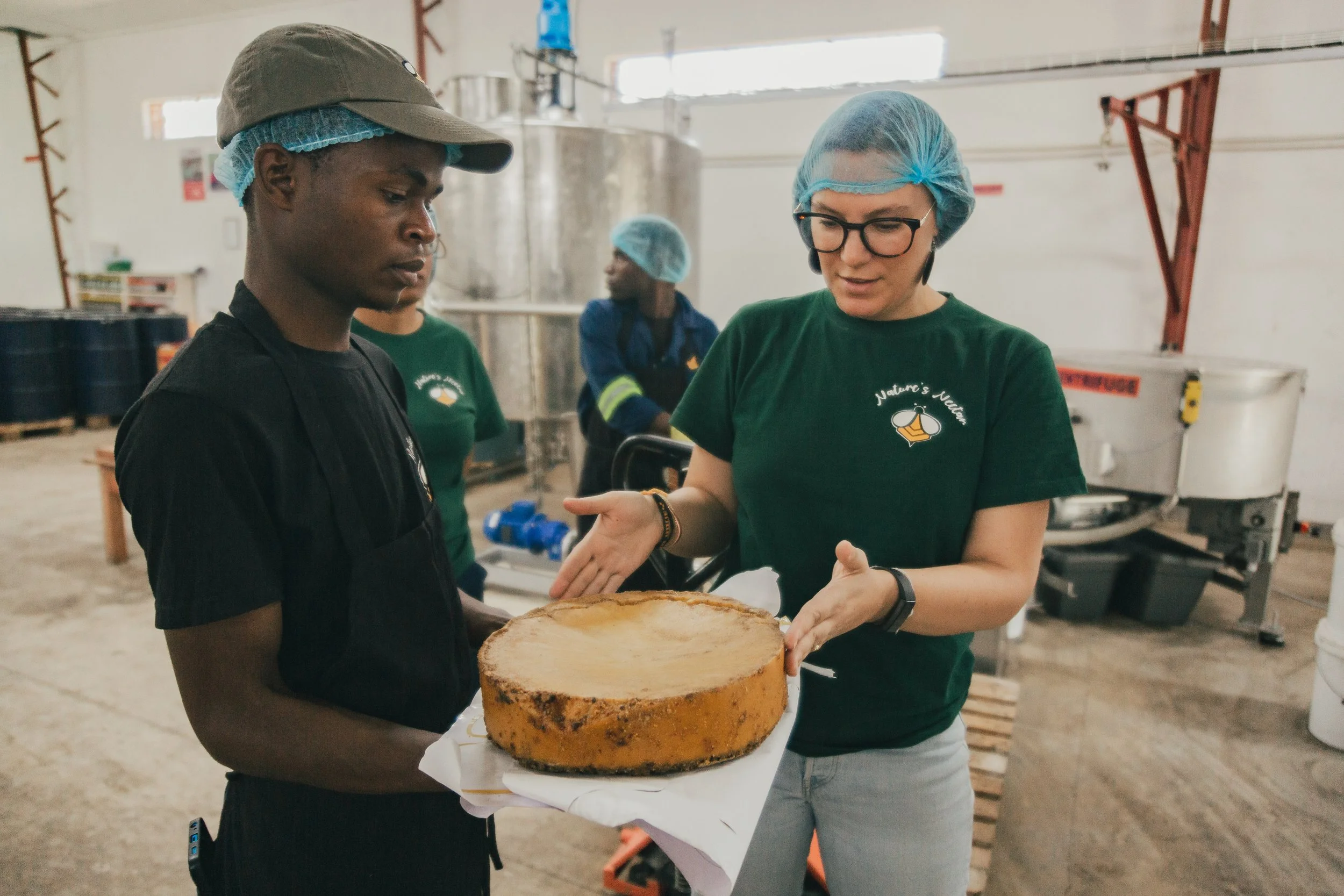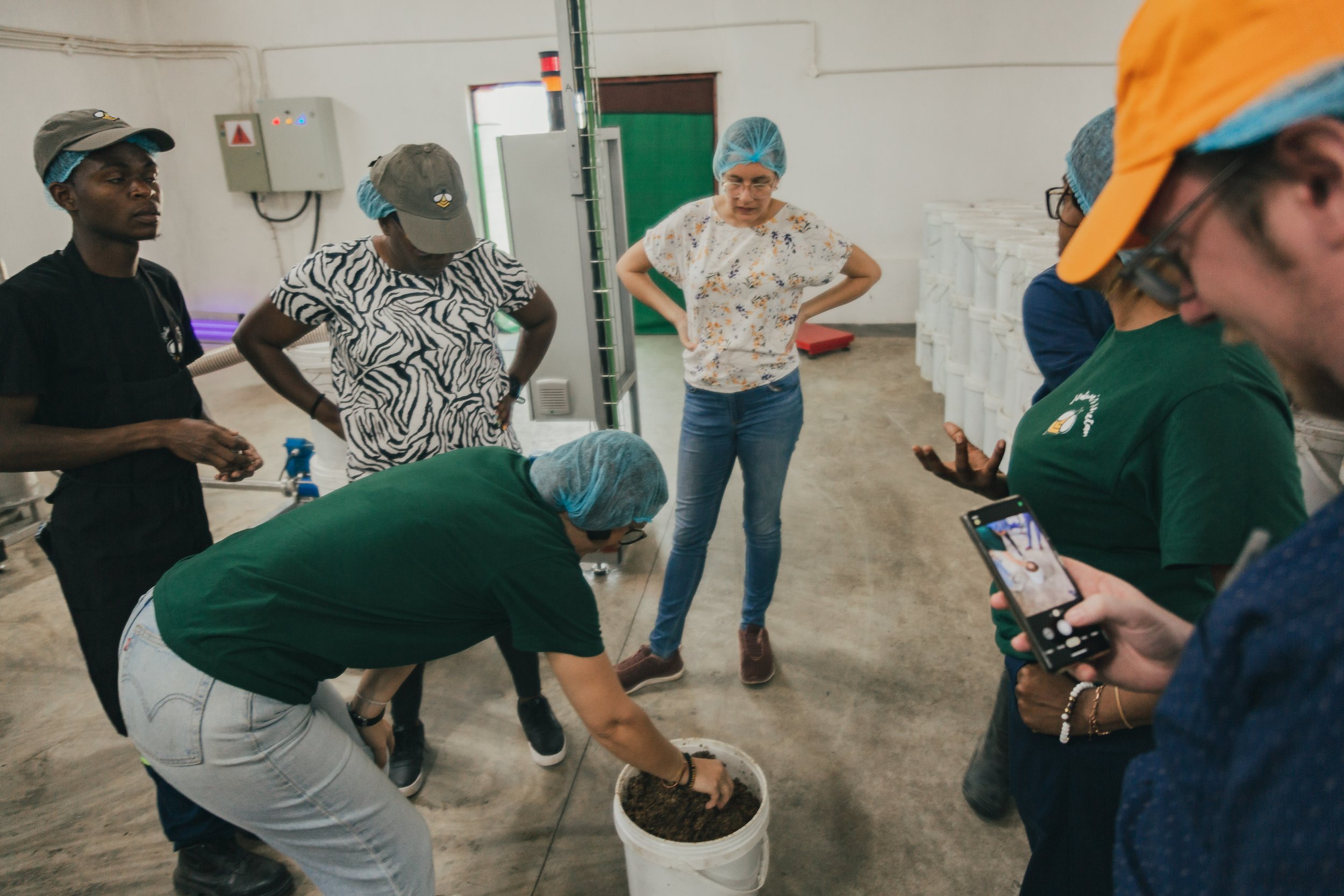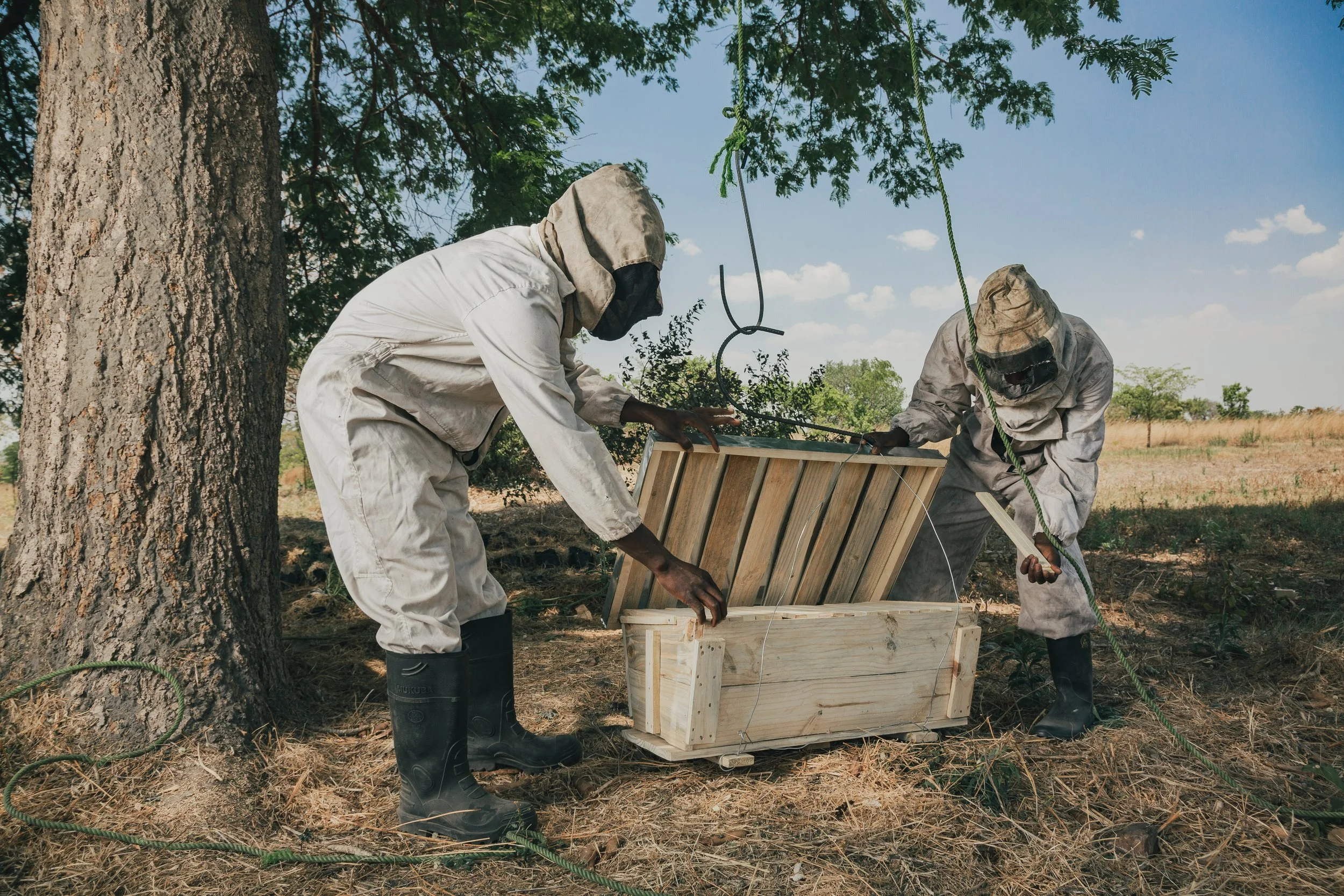Zambia’s Most Sustainable & Impactful Honey
Pure, Ethical, and Regenerative
Supporting Rural Beekeepers & Protecting Forests
Why Choose Nature’s Nectar?
🌍
Sustainably Harvested
Protecting Zambia’s forests & biodiversity.
👨👩👧👦
Empowering Rural Communities
Fair trade partnerships with beekeepers
✅
100% Pure & Natural
No additives, just raw honey
🏆
Trusted by Businesses Worldwide Supplying cafes, stores & brands.
We are Ecocert and FSSC22000 Certified
EU Organic Agriculture
USDA Organic Agriculture
Nature’s Nectar Certification of Registration.

Our Vision
Nature’s Nectar collaborates with communities and partners in Zambia’s conservation areas to produce the most sustainable honey possible.
Our Mission
To protect wild landscapes while supporting lasting livelihoods for local communities. By preserving these critical areas, we help ensure a sustainable future for both conservation efforts and the communities who depend on them.
Our Impact

Enhancing Livelihoods and Preserving Forests
A Centuries-Old Tradition Under Threat
For generations, Zambian beekeepers have used bark from indigenous trees to create cylindrical hives, but each hive requires cutting down one tree and lasts only 2-3 years. With the honey market growing over 700% in the past five years, this practice is now unsustainable, accelerating forest degradation. Critically, the trees used for these hives are major nectar producers, and their loss impacts both forests and honey production long-term.
A Sustainable Path Forward
While bark beehives are unsustainable due to the booming Zambian honey market, the traditional knowledge of local beekeepers remains invaluable. This expertise facilitates the transition to more sustainable top-bar beehives made of pine, which last up to five times longer than traditional hives and do not require cutting down local trees. These new hives function similarly to bark hives, leading to better quality honey, reduced disruption to bee colonies during harvest, enhanced community engagement, and positive effects on forest conservation.










